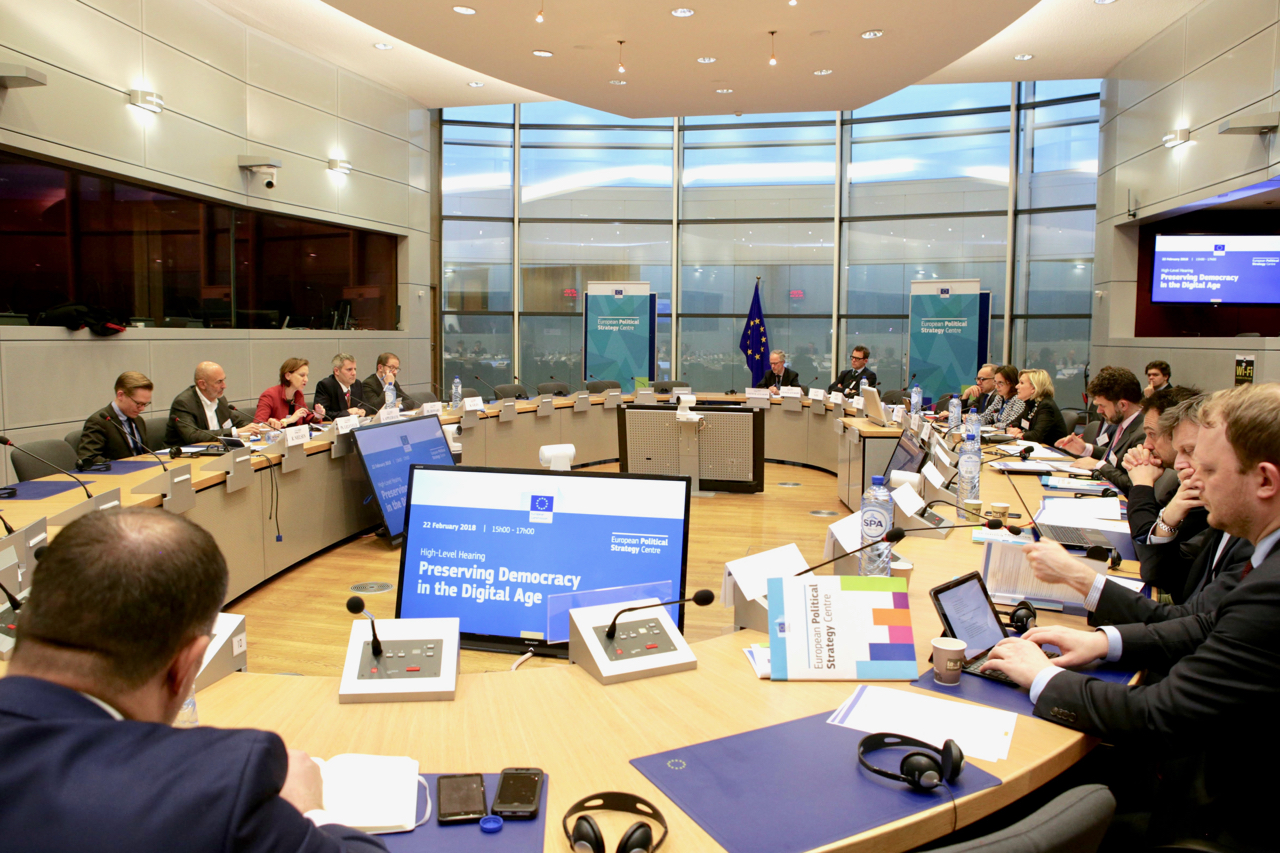Preserving Democracy in the Digital Age

Rasmus Kleis Nielsen, Director of Research at the Reuters Institute for the Study of Journalism, and Professor of Political Communication at the University of Oxford, was among five international experts recently invited to give evidence to a High-Level Hearing on Preserving Democracy in the Digital Age.
Nielsen was joined on the panel by Anne Applebaum, Washington Post columnist and Professor of Practice, London School of Economics; Philip Lelyveld, Project Director on Immersive Experiences, Entertainment Technology Centre, University of Southern California; Keir Giles, Senior Consulting Fellow on Russia and Eurasia, Chatham House and Director, Conflict Studies Research Centre; and Philip Howard, Professor of Internet Studies and Director of Research, Oxford Internet Institute, University of Oxford. The panellists gave evidence on the causes and impact of online disinformation and ‘fake news’, as well as how to counter it. They were also asked their views on whether current initiatives by the European Commission to tackle the issue are sufficient.
All five panel members agreed that online 'fake news' and disinformation pose a threat to democracy. Nielsen questioned the terminology used in the debate, saying he preferred to use the word ‘disinformation’ to the term ‘fake news’. “Fake news’ is poorly defined, politicised and misleading,” he said.
The panel discussed to what extent the spread and scale of online disinformation has been enabled by digital media and by the decline of traditional media.
Nielsen pointed out that while digital media allows the spread of hate speech, it also enables the spread of empowering messages and democratic campaigns, such as the #metoo and Never Again movements.
Panel members questioned the amount of online disinformation audiences are exposed to. Philip Howard pointed out that the consumption of ‘junk news’ varies according to country. Audiences in western European democracies see low levels of ‘junk news’, and significantly less than in other parts of the world, including the United States, he said.
Asked to suggest initiatives that could be effective against online disinformation, the panel offered a range of proposals, ranging from addressing the issues of anonymity online and raising public awareness, to auditing algorithms designed by technology platforms.
Anne Applebaum said the EU should focus on online anonymity which, she argues, currently allows those who spread disinformation and hate to remain unaccountable: “whether it takes the form of about fake accounts or even non- human bots on Twitter or Facebook, or fake and misleading websites – anonymity gives almost complete freedom to people who are driven by anger or greed or ideology or financial interests. It’s the primary tool that Russian and alt-right propagandists have used to create fake websites that echo and repeat stories or to artificially amplify false and damaging narratives,” she said.
Philip Lelyveld said the focus should not be on stopping ‘fake news’, but on promoting the truth by recognising and rewarding trustworthy sources. Keir Giles believes raising public awareness is “the first and most effective response … to hostile subversive and destabilising activity”.
Philip Howard argued for “a regular system of algorithmic audits. We audit video gambling machines, we audit financial trading algorithms, all in ways that don’t violate the intellectual property of those technology firms. There is no other domain of business in which a company can design and build something, release it to the market and change the product only when somebody complains,” Howard said. “A system of regular algorithmic audits would allow us all to restore trust in the social media systems that many of our citizens now value.”
Howard and Nielsen warned the EC over the use of regulation against online disinformation. What is needed, Nielsen argued, is a renewed commitment to the fundamental values that characterise open societies. He called for institutions that protect those values to be reinforced, for public authorities to invest more resources in supporting independent news media and professional journalism, and for governments to do more to enable investigative journalism by providing better access to public data.
Howard said the market should be guided with a ‘softer touch’ to encourage a civic approach to data. “To get us out of the democratic deficit we’re in, we must make policy not just for the Internet we have, but for the one that is coming,” he said.
The hearing, established to intellectually accompany the European Commission’s public consultation on ‘fake news’ and online disinformation was held at the European Political Strategy Centre in Brussels and moderated by Ann Mettler, Head of the European Political Strategy Centre (EPSC), and Ulrik Trolle Smed, Policy Analyst at the EPSC.
Read more here.



